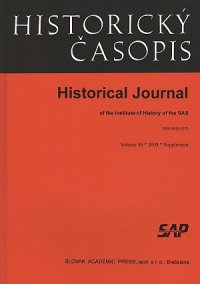Pracovné, sociálne a kultúrne podmienky slovenských robotníkov v Nemeckej ríši v rokoch 1939 – 1945
The Working, Social and Cultural Conditions of Slovak Workers in the German Reich, 1939 – 1945
Author(s): Peter MičkoSubject(s): History
Published by: Historický ústav SAV
Keywords: History; Slovakia; Nazi; Germany; unemployment; economy; clearing payment system
Summary/Abstract: The author devotes attention to the question of the migration of Slovak industrial and agricultural workers to work in Germany in the period 1939 – 1945. This was associated with the economic connection between the two countries. It simultaneously solved the problems of shortage of workers in Germany and long-term unemployment in Slovakia. On the basis of an agreement from 8 December 1939 on the provision of Slovak workers to the Third Reich, workers went to Germany for permanent or seasonal work. We can assess the migration of workers to Germany from two points of view. On one side, we must state that the employment of Slovak workers in the “Third Reich” occurred on a voluntary basis and after the conclusion of a normal employment contract. The main motivating factor was the availability of a good income to support the family at home in Slovakia. The employment of workers abroad succeeded in reducing unemployment – a long-term problem of the Slovak economy. On the other side, from the point of view of the state, the employment of workers in Germany was an economic burden, because the workers had to be paid by the *SNB form, a clearing method of payment disadvantageous to Slovakia. In this system of payments, Slovakia gained high unpaid claims against Germany, which placed a heavy burden on the state treasury.
Journal: Historický časopis
- Issue Year: 2009
- Issue No: 04
- Page Range: 659-678
- Page Count: 20
- Language: Slovak

